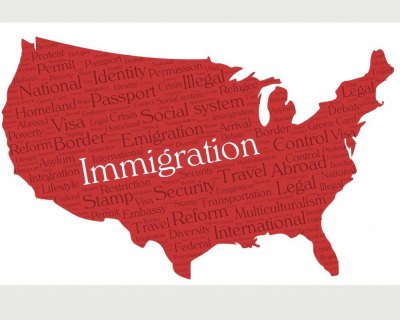Doing the math: Unauthorized immigrants

Immigration reform has proven to be an intractable issue.
Should the United States, with a population of 321 million, according to the U.S. Census Bureau, absorb, deport or find a middle ground for approximately 11.3 million unauthorized immigrants? Every person who comes to the U.S. has a different story, but statistics can offer a snapshot:
- An overwhelming portion of the country’s illegal immigrants are from Mexico and Central America, according to the Economic Policy Institute. But the organization noted that there are also unauthorized immigrants from Asia, South America, Europe and Canada.
- A recent Pew Research Center report using federal government data estimates that the number of babies born to illegal immigrants increased from the 1980s until 2007 but has been on the decline in recent years. In 2013, unauthorized-immigrant parents gave birth to 295,000 babies, the center reported. There were 3.9 million births in the country that year, so children born to unauthorized immigrants make up 8 percent of the total. In 2007, there were 370,000 births to unauthorized-immigrant parents.
- In a separate report, Pew estimated that in 2012, there were 4 million unauthorized-immigrant adults living with their U.S.-born children. Most of them – 3 million – had children who were minors.
- What about public assistance? As noted by the Economic Policy Institute, “unauthorized immigrants themselves by and large are ineligible for such programs because of their immigration status.” The U.S. Department of Health and Human Services points out that "since 2009, states have the option of covering lawfully present children and pregnant women in Medicaid and/or CHIP [Children's Health Insurance Program]."
- Is deporting them a good idea? Humanitarians would argue against it -- but so would economists. The Economic Policy Institute notes that unauthorized immigrants are also consumers. They compete with others for jobs, but they also eat and pay rent.
Sources:
- Pew Research Center : Unauthorized Immigrants, who they are and what the public thinks.
- Pew Research Center: As growth stalls, unauthorized immigrant population becomes more settled.
- Pew Research Center: Number of babies born in U.S.to unauthorized immigrants declines.
- Economic Policy Institute: Immigration Facts.
- U.S. Department of Health and Human Services: Overview of Immigrants Eligibility for SNAP, TANF, Medicaid, and CHIP.
- U.S. Census.
Related:
Child refugees: U.S. on wrong side of history
Immigration reform: American attitudes shift

